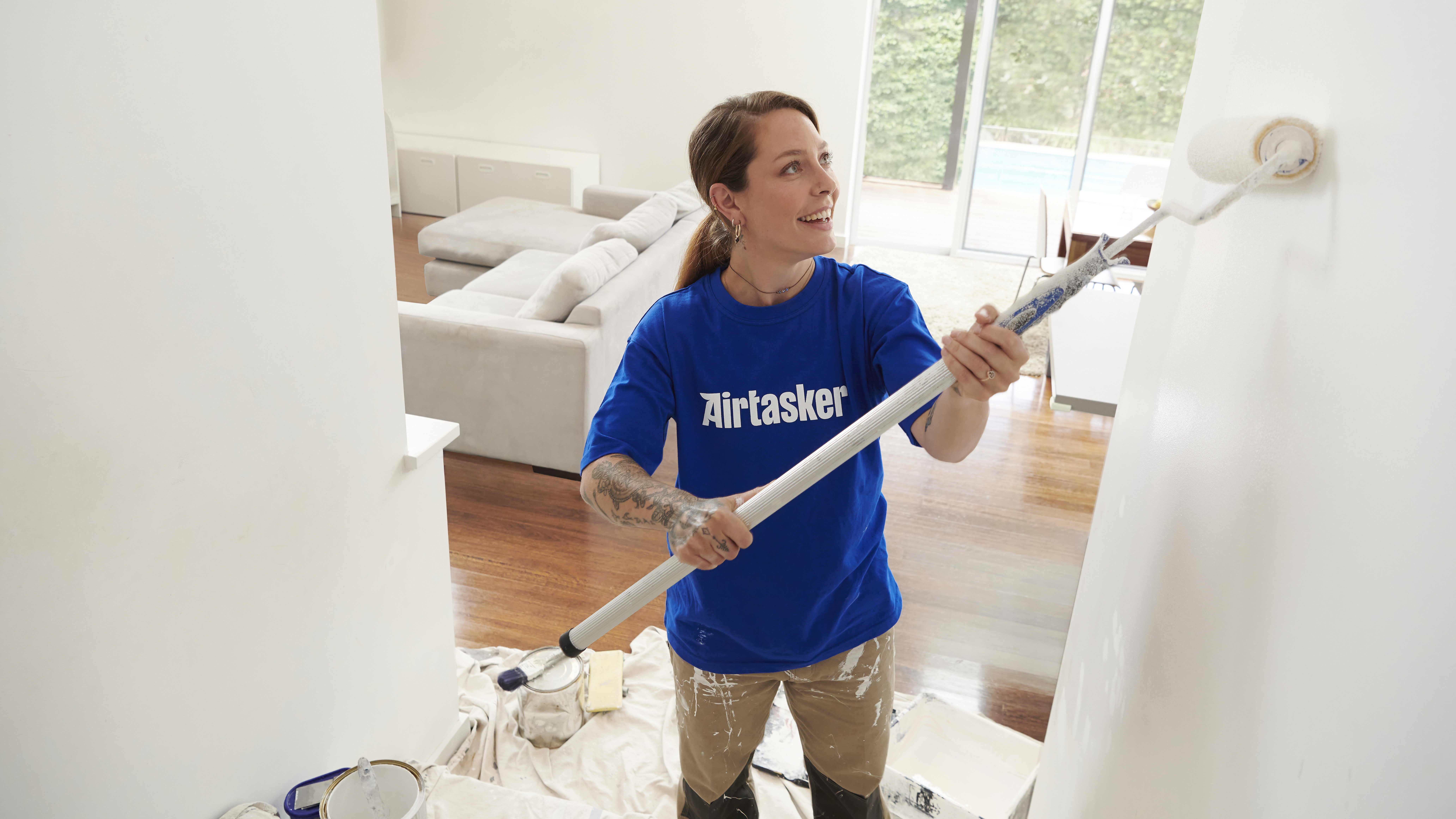Why Airtasker’s biggest shareholder remains a staunch supporter

Exto Partners is bullish on Airtasker as it expands internationally. Pic: Airtasker
- Sydney-based venture capital firm Exto Partners holds 16% stake in Airtasker
- Exto Partners was an early backer of Airtasker with the casual jobs marketplace one of its biggest investments
- Venture capital firm bullish on Airtasker as it expands in larger UK and US markets
The biggest shareholder and one of the first investors in Airtasker (ASX:ART) remains bullish on the casual jobs marketplace for skilled workers saying its future looks promising as it expands to key international markets.
Sydney-based venture capital investment firm Exto Partners was one of the first investors in ART as a startup back in 2013 and its co-founder and director Peter Hammond is also a non-executive director of Airtasker.
Exto Partners, started in 2003, has backed the next growth phase of some of Australia’s fast growing tech companies along with operational businesses and holds the biggest stake in ART of ~16%.
“We’ve helped build a whole range of different technology enterprises from software and hardware businesses to a biotech business with Noble prize winner Barry Marshall,” Hammond told Stockhead.
The Australian physician won, with J. Robin Warren, the 2005 Nobel Prize for Physiology or Medicine for their discovery that stomach ulcers are an infectious disease caused by bacteria.
“We started Exto Partners by founding and building a range of different businesses, successfully listing two of these businesses and selling a number of others,” Hammond says.
From their successes, Exto partnered with a group of high net worth investors to establish a venture fund, Exto Active.
“Our strategy has been to work closely with founders to build those businesses and become a major shareholder,” Hammond says.
“We assist our portfolio companies in establishing a capital structure that facilitates continued investor support, backing them through the multiple investment rounds necessary for their success, and that is what we’ve done with Airtasker.”
Airtasker has become a major investment of the Exto Active VC fund.
“We were interested in the gig economy and had been investing in marketplace businesses,” Hammond says.
“Our view has been that successful marketplaces are those that establish strong value propositions on both sides of their platforms, enabling very significant network effects.”
ART has more than two million jobs a year going through its platform in Australia on the basis of limited marketing with Hammond saying this proves it has a dense network effect.
Meeting with founder helped seal deal
Hammond says he met founder and CEO Tim Fung, who started ART in 2012, early on and at a time when he had only taken in a “little bit of money from friends and family investors”.
“When I met with Tim, I thought he was very impressive and someone who would be able to create something and so we started to look at his business model,” he says.
“I told him next time he’s looking for funds we can have a chat and we’d be interested.
“We invested when he just started getting the marketplace going and they were learning quite a lot.”
Hammond says Exto helped build ART up from that point seeing it through some major transitions and to its IPO in March 2021.
“They built the technology and started really narrowing down the proposition and then we went through the process of having Channel Seven involved to really build the brand,” Hammond says.
A ‘media-for-equity’ deal with Seven West Media (ASX:SWM) resulted in a 20-times revenue increase and elevated ART to household brand status.
The five-year deal saw SWM become one of the company’s biggest investors with about an 18% stake before it elected to cash in at the IPO, receiving ~$45million for its stake.
Bullish on ART after two quarters of positive free cashflow
ART was somewhat of a market darling when it listed, with the share price closing 60% above the IPO price of 65 cents on day one to $1.05.
However, ART has seen its share price decline from those highs to ~25 cents today.
Hammond nonetheless remains bullish on the company’s long-term prospects as it expands internationally.
After a fluctuating pandemic period, conditions softened in August 2022 and remained subdued throughout 2023.
Like other market platforms, ART was also dealing with job cancellations, often due to parties agreeing to go ‘off platform’ after being introduced.
To combat “task leakage,” the company introduced a cancellation fee on its typical $250 jobs earlier this year, which has seen a 24% drop in cancellations in the March 2024 quarter.
Demand is also picking up, while supply remains high, and prices are increasing with ART in April 2024 announcing its second consecutive quarter of positive free cash flow.
Media-for-equity deal in the UK
Furthermore, ART is aiming to replicate its successful SWM deal in the UK, having inked a similar five-year deal with Channel 4.
The deal provides ART with an initial $6.7 million worth of advertising time, granting access to the channel’s 47 million viewers — 78% of the UK population.
In exchange, Channel 4 receives a 25% stake in the Airtasker UK entity (a subsidiary of the listed Airtasker).
The partnership is already yielding results. According to ART’s March 2024 quarter report, there has been a 49% increase on pcp in UK job postings, with UK revenue climbing 30.6% to £574,000 ($1.1 million).
Additionally, ART is exploring partnership opportunities in the US, where it is beginning to establish a presence.
“What we’ve done in the Australian market proves that the model works really well, is highly scalable and that its network effects are actually working,” Hammond says.
“With pretty minimal marketing investment in Australia we are achieving solid revenue growth, so when we invest more marketing into Australia over time it will really have an impact.”
“We’ve consciously decided to use the strong cashflow generated by the highly profitable Australian business to build the international markets.
“If we can build similar networks in these much larger markets, we will be on our way to creating a global brand the scale of AirBNB.”
Hammond says the ART model is built on trust. He says the reputation passport, where someone can only provide a review once they have used that person, works to build trust and creates a significant moat for ART.
“When you post a task to get something done, you typically receive four or five people bidding on it, with each having many reviews indicating the quality of their work and the percentage of times they have followed through and done the work, showing their reliability,” he says.
“This gives you a pretty good feel about whether the person is going to be any good or not, whether they’re local, are diligent and have completed all the tasks required of them in the past.
“I don’t know where else you could go to get this type of information before engaging a handyman, a cleaner, a removalist, someone to do your garden, or someone to entrust with the more idiosyncratic life tasks that we see posted.”
Furthermore, he says ART’s management of the payments, where funds for a job get deposited by a customer and paid to the provider of the work upon completion, also builds trust in the system and serves those doing the work as well.
“Both sides of the marketplace understand, respect and value these features of the platform and I think they make the core business model sound and very effective,” Hammond says.
“Tim is a very talented CEO with a strong team.
“He is a good communicator, smart, energetic, creative, excellent at building trust and partnerships, and a genuinely caring person.
“The combination of a very strong business model, wonderful brand and a great CEO and team sets ART up for huge global success.”
This article was developed in collaboration with Airtasker, a Stockhead advertiser at the time of publishing.
Related Topics
UNLOCK INSIGHTS
Discover the untold stories of emerging ASX stocks.
Daily news and expert analysis, it's free to subscribe.
By proceeding, you confirm you understand that we handle personal information in accordance with our Privacy Policy.








